How to treat enuresis in children
Unfortunately, such a pathological condition as enuresis resolves on its own in only 15% of cases. This means that it requires specialized treatment, which should include not only drug exposure, but also a variety of mental health interventions.
The treatment of enuresis in children requires a special approach to each patient, because the success of the therapy depends on it. It is not always easy to cure enuresis, especially if this process has remained for a long time without diagnosis.
When a child has problems with urination, parents simply have to show it to a specialist. Only a doctor is able to determine whether bedwetting in a baby is a variant of the age norm, or whether this condition requires immediate treatment.
I mark it so important to treat enuresis in a timely manner?
Some parents believe that since their child is not bothered by any unpleasant symptoms, except for episodes of nighttime urination, then nothing needs to be done. This is a big misconception, as enuresis in boys and girls can cause the following problems:
- the general quality of life suffers (for example, the child is deprived of the opportunity to go somewhere on vacation, to a summer camp, etc.);
- if you do not get rid of enuresis in time, then there is a threat of the onset of complications, such as nephropathy (against the background of constant reflux of urine);
- Enuresis in male adolescents with age turns into problems of a sexual nature, problems with potency begin.
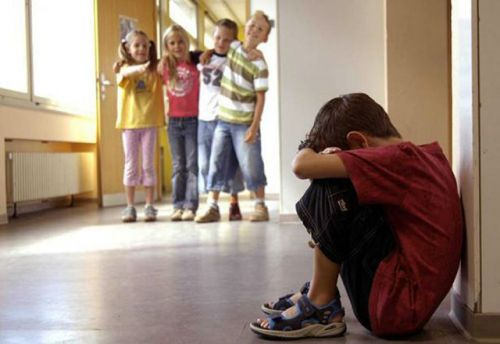
Such children are socially maladjusted, they do not get along well with their peers, they stop doing well at school, study poorly, begin to withdraw into themselves.
Patient management
Only a doctor knows how to treat enuresis, but only half of the success depends on the measures taken by him, the other half belongs to the efforts of the child himself and his parents. This means that the therapy requires the participation of not only a specialist of the appropriate profile, but also the psychological support of the mother and father, as well as the desire of the baby to recover and follow all the recommendations.
Mode and principles of nutrition
For the treatment of enuresis in children, it is very important to be able to properly plan the level of their physical and mental stress during the day. You can not overload the child with information, force him to learn something from morning to night, or go to sports sections every day.
The baby's body must learn to "rest" not only at night, but also during the day. It is best to allow the child to choose his own activity to his liking, and not force him to do something.
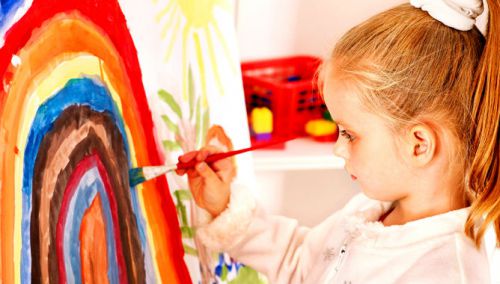
The best way to distract a child from unpleasant thoughts is to engage him in his favorite thing.
Such children need a good night and day rest. The duration of sleep depends on the age of the child, as shown in the table below:
| Child's age | Average sleep duration per day |
| Children up to 2 months | 19 hours |
| Children from 3 to 5 months | 17 hours |
| Children from 6 to 8 months | 15 hours |
| Children 9 to 12 months | 13 hours |
| Children from 1 to 3 years old | 12 hours |
| Children from 4 to 5 years old | 11 o'clock |
| Children from 6 to 9 years old | 10 hours |
| Children from 10 to 12 years old | 9.5 hours |
| Children from 13 to 15 years old | 9 o'clock |
Treatment of nocturnal enuresis is also impossible without following the principles of proper nutrition. You must adhere to the following recommendations:
- the last meal should be 3-4 hours before bedtime, so as not to burden the body with work during sleep, including filtration processes in the glomerular apparatus of the kidneys;
- all foods that can stimulate the functioning of the nervous system are excluded from the diet (cocoa, carbonated drinks, coffee, fatty and fried foods, smoked meats, spices, etc.);
- It is not recommended to drink liquid in large volumes, especially 3-4 hours before bedtime.
The motor activity of the child should be sufficient, because it is necessary for the normal development of all body systems (muscle apparatus, joints, ligaments, etc.).
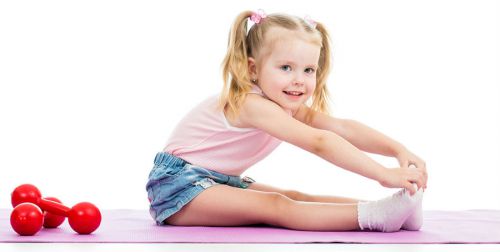
All children suffering from nocturnal enuresis are recommended to perform physiotherapy exercises and morning exercises daily, as well as spend time outdoors.
Immediately before going to bed, you need to make sure that the baby goes to the potty, that is, his bladder is completely empty.
During sleep, the child should not freeze, so he is covered with a blanket. The temperature in the room should be as comfortable as possible.
For the treatment and control of enuresis, the “alarm clock” method is widely used, that is, interrupting sleep artificially (the baby is awakened 3-4 hours after falling asleep and asked to urinate in a potty or go to the toilet).
A set of special exercises
There are exercises that will help in the fight against the pathological process (provided that they are performed regularly and daily). Let's consider some of them:
- If there is a desire to urinate, it is necessary to lay the baby on his back. After that, dull to soft pressure on his stomach (in the projection of the bladder), about 10-12 times. At the same time, it is necessary that the child tell his parents about his feelings, whether the urge has increased or not, whether he can control it, etc.
- To strengthen the external sphincter of the bladder, the child is asked to stop the stream during urination. The girls are seated on the toilet, and they try to interrupt the act of emptying the bladder without moving their legs, while the boys must do this while standing.
Psychological help in the fight against enuresis in a child
Very important in the treatment of nocturnal enuresis in children belongs to the psychological aspects, which are determined by parental support, understanding from brothers and sisters, warm family relationships, etc.
The child must feel that he is loved and that he is no worse than other children. In no case should you punish the baby for a wet sheet, this will not bring absolutely any positive changes, but will only close him in himself (the psychological attitude is important).
Doctors recommend rewarding the child for several "dry" nights in a row, for example, some pleasant trifle or going to the movies. So, the baby develops motivation and self-adjustment for success, which will certainly bear fruit.
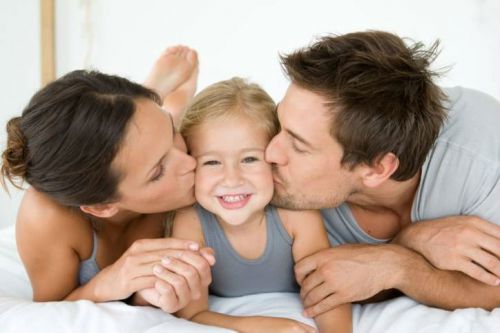
Parents should protect such children from any stressful situations and nervous strains, because he should feel as protected as possible.
Physiotherapy treatments
Among the methods of physiotherapy, the following should be distinguished:
- Electrophoresis with a drug (Diclofenac, Cortexin and others). Thanks to this procedure, the drug is delivered directly to the tissues of the bladder, which can affect its contractile activity.
- Electrosleep is a method that allows you to influence the structures of the brain using electrical impulses. At the same time, the functional activity of the patient's nervous system changes, the sleep process normalizes, the brain "learns" to fully rest.
- DENAS-therapy. Thanks to the procedure, electrical stimulation of brain neurons, namely reflexogenic zones, occurs. Artificial impulses enter the cells of the organ, which helps in the fight against the pathological process.
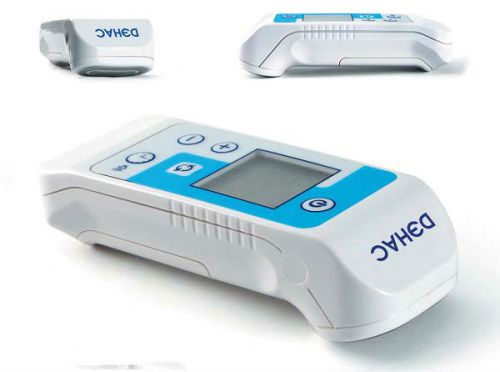
The advantage of DENAS-therapy is the possibility of its implementation at home.
Methods of drug treatment
To cure children's enuresis, without the use of drugs, is almost impossible. Therefore, it is very important to contact a specialist in a timely manner, who will prescribe the necessary drug therapy for the child.
Only the doctor determines which drug to prescribe to a particular patient, because each of them has its own side effects and limitations in use.
Apply drugs from the following pharmacological groups.
Analogues of antidiuretic hormone (synthetic origin). These include: Desmopressin, Minirin, Presineks and Adiurekin SD.
The mechanism of action of these drugs is the compensatory replenishment of the natural hormone vasopressin, which normally reduces the formation of urine at night.
These bedwetting pills have a more pronounced effect on kidney tissue than their "natural" counterpart. They are approved for use only in children whose age has reached 6 years. The course of treatment lasts 3 months, if necessary, it is repeated.
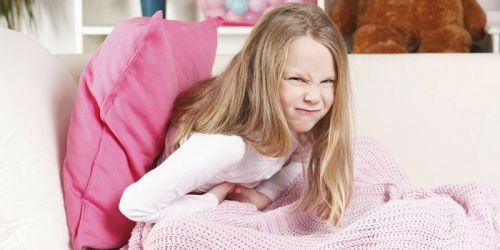
Quite often, undesirable effects such as diffuse headache, night sweats and severe abdominal pain are observed in children taking synthetic analogues of vasopressin.
Drugs with anticholinergic effect. These include: Levzin, Detrol, Belladonna, Atropine, Driptan, detrusitol, Spasmex.
The mechanism of their action is reduced to a decrease in the sensitivity of the receptor apparatus in smooth muscle cells located in many organs, including the walls of the bladder. This helps to increase its volume and improves reservoir function. This affects the striated muscle fibers located in the sphincter, which improves its contractile function.
Such a drug for enuresis, like Driptan, belongs to the latest generation of drugs, because it is able to have a selective effect on the tissues of the bladder, while there is practically no "systemic" effect.
When taking anticholinergics, it is very important to follow the regimen and the recommended dosage, since non-compliance with them threatens to develop a number of undesirable effects.
Among the side effects of medicines from this group, it is worth highlighting the following: a feeling of constant dryness in the mouth, redness of the face, visual impairment (decrease in acuity), mood swings and others.
Medicines that can have a stimulating effect on metabolic processes in the cells of the nervous system. These include: Glycine, Pantogam, Piracetam, Picamilon and others.
Let's take a closer look at some of them:
Pantogam is a drug that can increase the resistance of brain cells to a lack of oxygen and the effects of toxic substances. It improves metabolic processes in the neurons of the brain, has a mild calming effect. It has a positive effect on physical and mental activity. Decreases the frequency of urination. A similar effect has a drug with a similar mechanism of action and composition - Pantocalcin.
Piracetam is a drug that has a positive effect on most metabolic processes in brain cells. It improves the nutrition of neurons and the relationship between them, by expanding blood vessels and accelerating blood circulation. The drug helps in the fight against intoxication and damage to brain structures. However, the desired effect occurs gradually, which requires a fairly long time to take it.
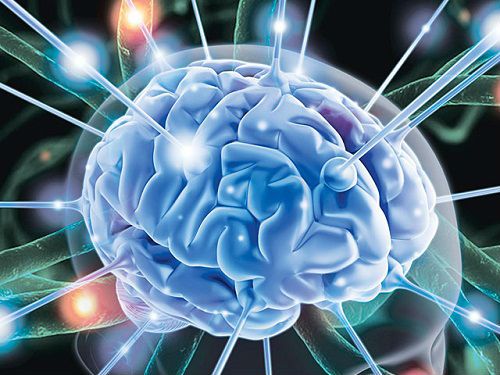
In patients, the level of mental activity increases significantly, irritability and all manifestations of asthenic syndrome (apathetic mood, lethargy, drowsiness, etc.)
Picamelon is a drug that is widely used in the practice of doctors involved in the treatment of patients with urinary incontinence. It is effective in combating the manifestations of vegetative-vascular dystonia, raises the level of mental and physical activity during the daytime, improves mood, has a positive effect on the process of falling asleep and normalizes sleep.
Phenibut is a drug that improves the transmission of nerve impulses between neurons, improves metabolic processes and blood flow in large and small vessels. It has a mild psychotropic effect, restores sleep, relieves the feeling of fear and unreasonable anxiety.
prostaglandin inhibitors. These include: Diclofenac, Acetylsalicylic acid, Indomethacin and others.
Drugs in this group are able to influence the formation of urine at night, by reducing the level of prostaglandins, which are synthesized in the tissues of the kidneys. This increases the sensitivity threshold of the bladder, which increases its reservoir capacity.
Tricyclic antidepressants. These include: Amitriptyline, Imipramine (Melipramine).
The drugs of this group were previously very widely used to treat patients with various forms of urinary incontinence, however, at present, their use has significantly decreased, which is associated with a high level of addiction to them.
Antidepressants activate the work of nerve cells, have a positive effect on sleep, improve the patient's mood, and increase psycho-emotional resistance to stressful situations. They also reduce the sensitivity and excitability of the bladder, increase the muscle tone of its sphincters and stimulate the production of vasopressin at night.
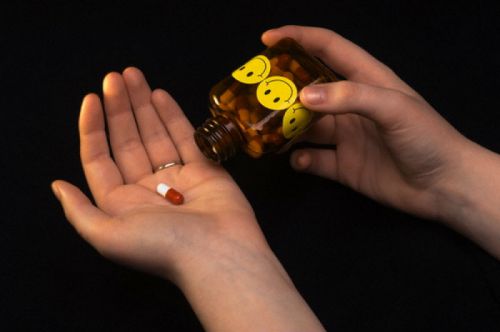
The appointment of antidepressants and their choice is carried out only by a psychiatrist
Means from other pharmacological groups. Quite often, as an adjuvant therapy, the following drugs are prescribed:
- Enuresol, the so-called "five", which includes several components at once (belladonna extract, calcium gluconate, Securinin, Ephedrine and vitamin B1). In combination with each other, they have a good general tonic and firming effect. Help in the fight against urinary incontinence.
- Cortexin is a drug with high metabolic activity. Improves and restores the relationship between the hemispheres of the brain and metabolic processes in neurons. This drug treats hyperactivity syndrome in a child with attention deficit, improves the patient's memory and concentration abilities.
Phytotherapy
In the treatment of patients with enuresis, phytocollections are used, from which decoctions and infusions are prepared.

With the daily use of phyto-collections, the well-being of patients improves, but only on condition that all components of the collection are selected correctly.
Herbal medicine is used as an auxiliary method of treatment, it is aimed at combating the inflammatory process, eliminates pain and spastic syndrome, and also gently calms the nervous system and reduces the excitability of the walls of the bladder.
Decoctions and infusions are prepared as follows:
- A decoction of dill seeds. For him, you need to take 2 tbsp. l. dried seeds and pour them with 0.5 liters of boiling water, then leave to infuse for 3-4 hours. Take a decoction of 250 ml twice a day 30 minutes before meals. The course of therapy is 2-3 weeks.
- A decoction of cherry branches and cherry stems. A bunch of branches and stems is placed in an enamel bowl and poured with boiling water. Infuse it for 30-40 minutes and consume 300 ml 3 times a day 1-2 hours before meals. The course of treatment is 5-6 weeks.
- A decoction of berries and leaves of lingonberries and St. John's wort. You need to take 2 tsp. dry substrate and pour 100 ml of boiling water, let it brew for 10-15 minutes. Drink the resulting volume of liquid during the day (several times in small sips). The course of treatment is 5-6 weeks.
Psychotherapy
Methods of psychotherapeutic influence, such as hypnosis, self-hypnosis and behavioral techniques, help to cure the disease.
The main task of a psychotherapist is to form in the patient's mind a reflex to controlled urination. This takes a long period of time, sometimes several months or years.
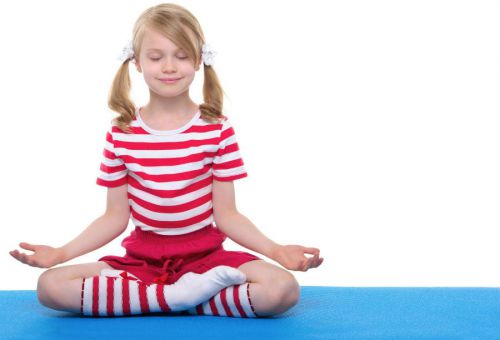
Thanks to self-control, the patient learns to “listen” to his body, control his desires, his body and bladder
Conclusion
It is very important to understand that it is not easy to treat enuresis in children, but it is necessary. This is a condition that requires a lot of attention from parents and doctors, because only their joint efforts can achieve the desired effect of therapy.
Enuresis refers to a pathological condition, which is treated by doctors of several specialties at once (pediatricians, psychiatrists, neurologists, physiotherapists, and others), because the approach to treating such patients should always be complex.




